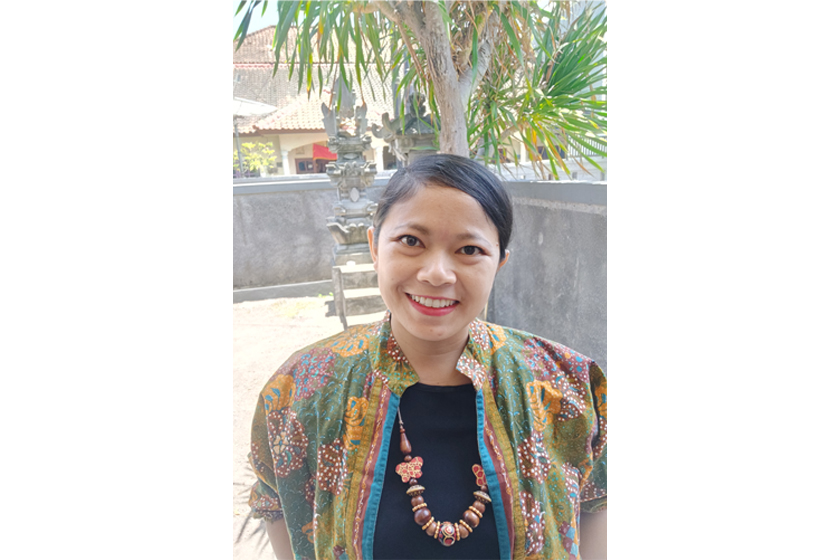11 February 2025
Join our Australian Alumni Grant Info Session!
Are you an Australian alumnus or Australia Awards in Indonesia scholar who want to strengthen your A... Read more
The Australia Awards are prestigious, transformational scholarships and short courses offered to emerging leaders for study, research and professional development in Australia

13 October 2021
 PREPARE: Preparatory Project for PrEP Implementation Study in Indonesia
PREPARE: Preparatory Project for PrEP Implementation Study in Indonesia
Project leader: Mrs. Brigitta Dhyah Kunthi Wardhani
Level of education and university: Master, Public Health, University of Melbourne
Collaborating Organisations: -
Project Location:
Activity Type: Academic research and research-related activities
Sector: Communicable Disease Prevention, Public Health, Human Resource Development
Project Rationale:
Indonesia is behind in its HIV mitigation target, despite incremental progress. The latest estimates by the Ministry of Health in 2019 showed 528,268 people were living with HIV (PLWH) in Indonesia, a decrease from 613,453 people in 2015. At the same time, routine trimester surveillance data showed a still relatively high number of new HIV cases with an upward trend from 2017 to 2019.
In the fourth quarter report by the Ministry of Health in 2019, the last year unaffected by the COVID-19 pandemic, there were 50,282 new HIV cases reported with a positivity rate of 2.3% of all recorded HIV tests conducted. Men who have sex with men (MSM) and waria (short for wanita-pria or female-male) are among the most affected among key populations in Indonesia. In 2019, the HIV positivity rate for these groups was 7.8% and 3.8%, respectively, higher than the figure reported for the overall population in Indonesia in the same year.
One of the reasons for this lagging progress is the slow pace in which Indonesia has adopted proven HIV mitigation intervention. The status of pre-exposure prophylaxis can be used as an example. Despite it having been recommended by WHO in 2015, Indonesia has not yet implemented this recommendation. This is despite the clear interest for PrEP in the most affected community. A recent collaborative study by the Center for Public Health Innovation and the Kirby Institute reported 47.7% of MSM and waria in Bali are interested in using PrEP, 37.7% are willing to adhere to PrEP procedures, and 18.2% are even willing to pay to use PrEP.
The lack of implementation research on PrEP in Indonesia is one underlying reason for the slow uptake of the intervention, which was noted in the 2020-2024 action plan for HIV mitigation in Indonesia. PrEP needs a high level of adherence to be effective. Currently, there is no data on the potential adherence of Indonesian MSM and waria to the PrEP regiment, necessitating an implementation study with a cohort of MSM and waria people. There is no baseline data on the rate of revisit and retest among HIV-negative MSM and waria over a period of time. While a database of HIV tests exists at the national level, it is often left unanalysed and was unusable for policymaking by local authorities. At the same time, access to this database is severely limited. It limits the ability of academics from non-governmental organisations to analyse and develop recommendations from this data. As such, a privately built database, developed in parallel to the one maintained by the central government, would be an alternative to providing these necessary data.
There is also an issue of maintaining a cohort of HIV-negative people. While collaborators in this project have been involved in a cohort study of HIV-positive people, there has been no large-scale study that conducted long-term follow-up on HIV-negative MSM and waria. There are fundamental differences in maintaining a cohort of HIV-positive compared to HIV-negative people. Essentially, HIV-negative people have less incentive to stay linked to a healthcare facility due to a lower perceived need for healthcare. To make matters more urgent, there is limited published data to serve as a baseline on retention of HIV-negative people to routine HIV testing. Meanwhile, these data and retention are exactly the factors that would be necessary to conduct PrEP clinical trials for HIV-negative MSMs and waria. Herein lies the challenge of establishing such baseline data while building a data collection system that would support the retention of HIV-negative people in a long-term cohort study. As such, this project is planned to rectify these shortcomings in preparation for a PrEP implementation study in Indonesia.
Project Beneficiaries:
Priority Development Area:
Health Security
Link with Australian organisation:
Kirby Institute, University of New South Wales
Share this project on:
 Related Project Profiles
Related Project Profiles
This website uses cookies to improve your website experience. We may also use cookies to analyse website data so that we can improve our online services. To find out more visit our privacy policy.
